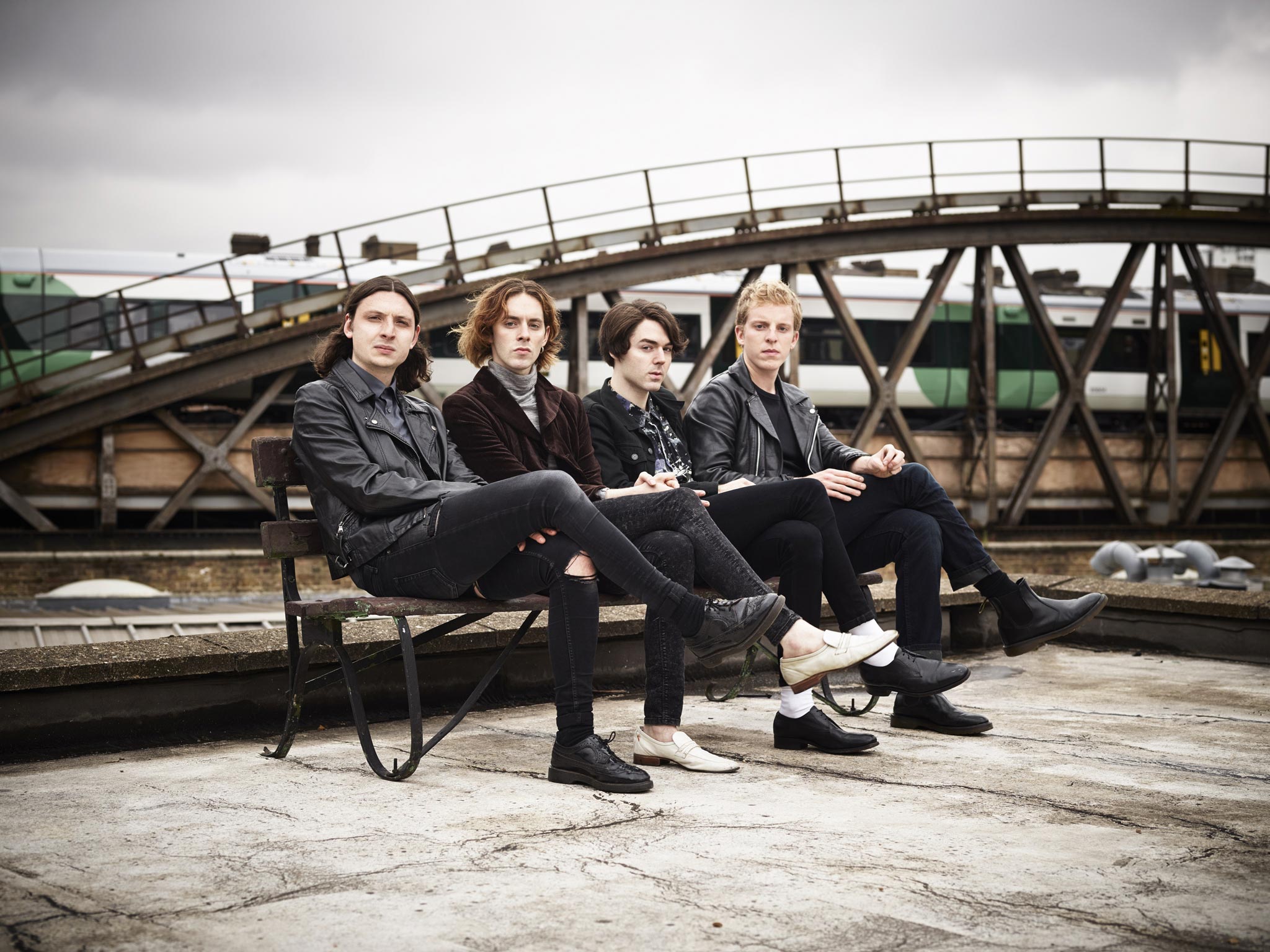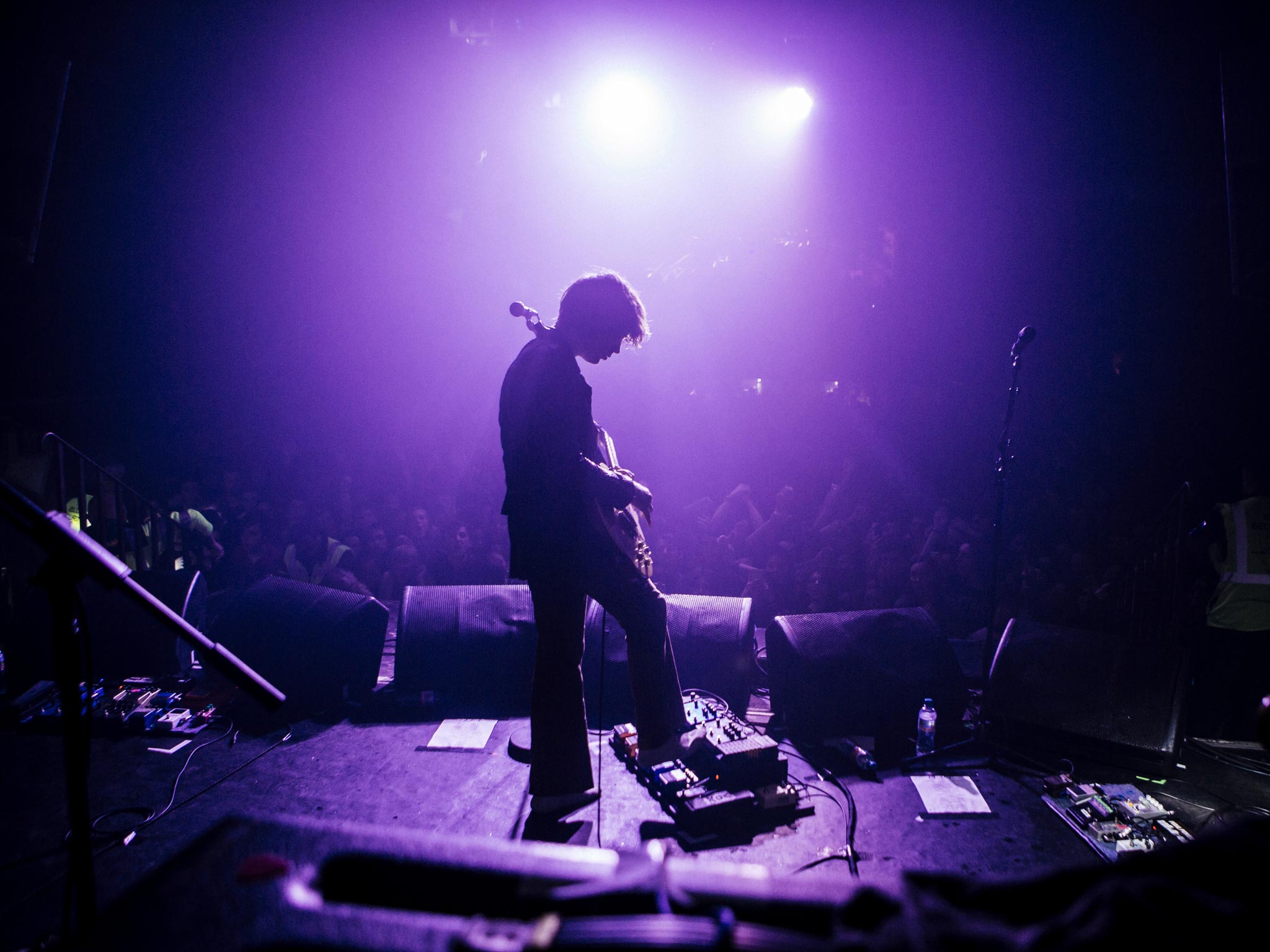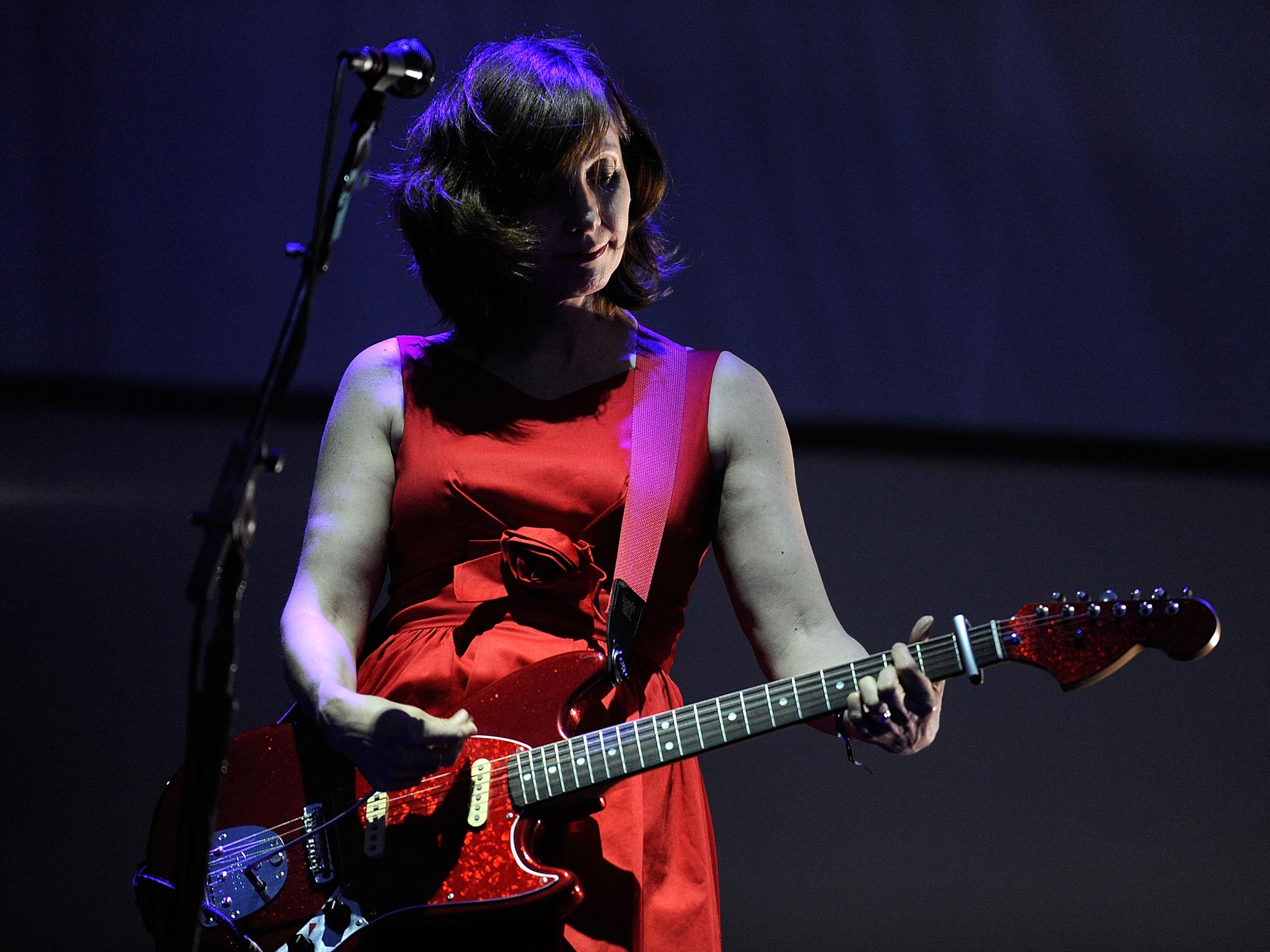Peace interview: 'The ones who get bored with touring are the ones who don't need to tour to exist'
The Britpop inheritors have taken their new album into the unforgiving environments of pubs and dive bars

The bodega in Nottingham is a two-level venue, with a bar downstairs and a tiny room on the upper level, where, squashed together on a stage little larger than a tabloid headline, Peace are playing the first of three nights to a packed mob of fervent punters.
Following a couple of fan favourites from their debut album, “Higher than the Sun” and “Follow Baby”, singer Harry Koisser announces a new song from their Happy People album, due to be released the following week.
Usually, this would be the cue for a rush to the bar. But nobody leaves. Instead, as “O You” gets into its stride, something odd happens. The crowd start singing along, as if this isn’t a new song they can’t yet be familiar with, but an old favourite.
The phenomenon is repeated with “Gen Strange”, greeted with the fervour of an old friend; and then becomes a huge wave of acclaim for the strutting groove of “Lost on Me”, which sounds like a monster hit from where I’m stood at the rear of the room, behind a bearded student dude dancing like he’s Bez’s younger, slightly more co-ordinated brother. How is this happening?

“Our fans are pretty intense,” acknowledges singer Harry Koisser. “We know that no one in that room had ever heard it before, but by the second chorus they’re all singing along.” It’s testament to the earworm immediacy of the songs on Happy People, which Peace’s smallscale J’Adore Tour is intended to promote.
It’s an unorthodox undertaking for a band more used to playing medium-size halls and arenas, with Peace pitching camp for several nights in each town, playing smaller clubs where their fans can get up close and personal: a “tour of intimacy”, as they describe it.
“It’s good to be a band that can support these places, because all these smaller venues are struggling,” says Koisser. “And there’s no place to hide – you can’t fit, like, four extra session musicians on that stage. It’s kind of a test: anybody that comes to check us out will see exactly what we’re like. There won’t be any big light show, explosions or stuff. If it doesn’t sound good, it’s because of us.”
And for a band that’s spent the past few years touring round the world, it makes a welcome change from the endless one-night stands. “It’s quite special doing this kind of ‘weekend away’ tour,” says guitarist Douglas Castle. “We get a break every few days, so you don’t get the intensity of a big tour; it’s pretty easy.”
“Although... the three or so weeks that we spent over Christmas not touring, I think we got more bored of not touring than we had when we were touring,” reckons drummer Dominic Boyce. “We never had any other back lives, though,” Koisser reminds him.
Enjoy unlimited access to 70 million ad-free songs and podcasts with Amazon Music
Sign up now for a 30-day free trial
Enjoy unlimited access to 70 million ad-free songs and podcasts with Amazon Music
Sign up now for a 30-day free trial
Rock and pop highlights of 2015
Show all 5“No, we’ve got no mates,” agrees Boyce. “I mean, I’ve got a girlfriend, but, y’know, barely. This is all we’ve got!”
“I think the ones who get bored with touring are the ones who have another option, who don’t need to tour to exist,” Koisser concludes. “But us, it’s like, if we don’t do this, we’re f**ked!”
Peace came together in Birmingham a few years ago, accreting around Boyce and Koisser, who initially got on, the latter claims, because “we were both really angry at modern life because it wasn’t the Seventies”.
“When we started, everything was chillwave and witch-house, but at that time I was more into Nineties trance and techno than anything else,” says Koisser.
“We tried to be quite techno in the beginning, then I heard [My Bloody Valentine’s] Loveless, and I just wanted to play really loud guitar.”
Koisser and his brother, bassist Sam, attribute their love of music to their father Dan, drummer in Midlands r’n’b band Blind Lemon. “We grew up going to see them play,” says Harry. “That was my Nineties: being a toddler, watching my dad play in pubs. I got fascinated by loud music.” It’s an illustration of the way that once immovable generation-gap divides have been eroded in recent years, with parents retaining an interest in new musical developments, and their offspring discovering the enduring value in older forms.
“People don’t have the same allegiances to music,” believes Castle. “You used to build your identity around the particular music that you liked, and hated everything else. But now, people are much more eclectic – you can be more objective because there’s been, like, 60 years of rock music and you can see where it’s all come from.”

“But if you connect with someone through a song, that’s something that’s never changed,” says Koisser, “no matter how you dress it up or what subculture it’s come from. When I’m writing, I don’t care who it sounds like, what I care about is whether the song grabs you.”
As the band’s songwriter, a lot gets carried on Koisser’s shoulders, but he’s getting used to doing the creative heavy lifting. Despite the band’s reputation as party animals, during the last tour Harry voluntarily took a step back, staying in his hotel room to work on new material. It’s a strategy that has paid handsome dividends, even though he’s mining his own anxieties and heartaches for songs like “O You” and the break-up song “Someday”, which he describes as his “Adele moment”.
“I got dumped, pretty brutally, from a long relationship,” he explains, “and I thought, ‘I’m going to write a song about it, that’s how I’m going to deal with the situation’. When I’m writing, at first it’s quite embarrassing, I don’t want to write what I’m actually thinking, because that’s me. The first time I listened back to these songs, I thought, ‘oh no, I sound like a horrible person!’. But then I realised, that’s what songwriters do.”
Allied to Koisser’s maturing skills as a songwriter is the band’s exploratory fascination with sound. It’s this that gives Peace songs that sparkly, psychedelic gleam, exemplified by the full-bore sonic maelstrom that is album closer “World Pleasure”, whose baggy groove expands to accommodate reversed guitars, strings and the full gamut of studio effects.
“We thought, ‘this is the last song on the record, let’s go f**king big’,” says Koisser. “‘Let’s have strings, let’s get the trumpets, let’s do everything that’s on the bucket-list of recording. Let’s spend all the money on it!’”

And it’s not just excess that excites them, but also exploration and invention. It’s great to hear a band excitedly explaining how they derived sounds from unusual sources – as when, on “I’m a Girl”, they split a guitar signal through a Marshall stack and a small practice amp, then held the small amp over the strings, so that the resulting feedback would be amplified through the Marshall.
“At one point, Doug’s guitar was going through four splits at once,” exults Koisser. “We’re splitting it within the cabinet as well – you have two stereo pairs of speakers in each cabinet, and if you mike up the cabinet in four different places, you can mix it out front. I don’t know if [My Bloody Valentine’s] Kevin Shields did that shit!”
The sonic exploration isn’t just confined to the guitars, either: “We pressed a whole drum track onto vinyl, then re-sampled it from the vinyl to the track again,” he admits. “So it came out of the computer, went to a processing plant where they made us a vinyl dubplate of it, then we played it back from a turntable into the computer.”
“We even tried recording a snare through itself,” adds his brother Sam, “playing a snare drum out of a speaker, onto a snare drum.” What did it sound like? “A snare drum, of course!”
‘Happy People’ is out now
Subscribe to Independent Premium to bookmark this article
Want to bookmark your favourite articles and stories to read or reference later? Start your Independent Premium subscription today.


Join our commenting forum
Join thought-provoking conversations, follow other Independent readers and see their replies
Comments